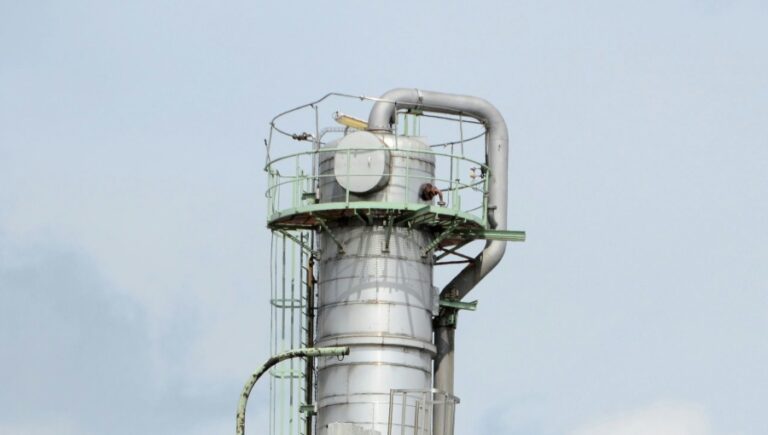Despite being Africa’s top oil producer and home to over 228 million people, Nigeria continues to rely heavily on imported crude—sourcing a substantial portion from the United States, thousands of miles away. In a striking development this year, the Dangote refinery, situated on the outskirts of Lagos, acquired nearly one-third of its crude oil from the U.S., particularly from the Midland oil fields in West Texas.
This represents a significant increase from its first year of operation in 2024, according to Bloomberg’s ship tracking data, and underscores Nigeria’s ongoing challenges in meeting its refining needs with domestically produced crude.
The shift in supply routes has global implications. U.S. cargoes destined for the Dangote facility would traditionally be directed to Europe, influencing the availability of barrels tied to the Dated Brent benchmark. By diverting these shipments to Nigeria, the supply of benchmark North Sea grades is tightened, offering marginal support to Brent prices.
Neil Crosby, an analyst at Sparta Commodities, remarked that this trend has “probably supported the Brent market at the margin,” noting that future U.S. shipments to Nigeria will depend heavily on market pricing conditions.
One key reason for Dangote’s preference lies in the superior refining qualities of West Texas Intermediate (WTI) Midland crude. According to Randy Hurburun, a senior refinery analyst at Energy Aspects Ltd., WTI yields higher-quality reformate and enhances gasoline blending, offering efficiency gains that Nigerian crude typically does not match.
A spokesperson for Dangote confirmed that the increased reliance on U.S. imports aligns with the refinery’s growing capacity and reflects a shortage in local crude supply.
The WTI Midland grade has become the most influential component of the Dated Brent benchmark. It was integrated into the pricing basket to compensate for declining output from aging North Sea fields such as Brent, Forties, Oseberg, Ekofisk, and Troll. These dwindling reserves have raised concerns over the long-term stability of the global oil pricing system.
Industry traders anticipate that Dangote’s refinery will receive approximately 14 million barrels of WTI Midland crude over the months of June and July. Vitol Group, a leading global energy trader, is reported to be the primary supplier for these shipments, although the company has not commented publicly.
The rise in U.S. crude deliveries to Nigeria comes at a time of declining Asian demand for WTI, as Chinese tariffs and increased competition from Abu Dhabi’s Murban crude diminish its appeal in the region. This shift in market dynamics has further opened the pathway for Nigerian refiners to capitalize on American oil.
In essence, while Nigeria continues to grapple with underwhelming domestic production, the Dangote refinery’s pivot toward imported crude—particularly from the U.S.—signals both a strategic move for operational efficiency and a revealing snapshot of global energy realignment.


